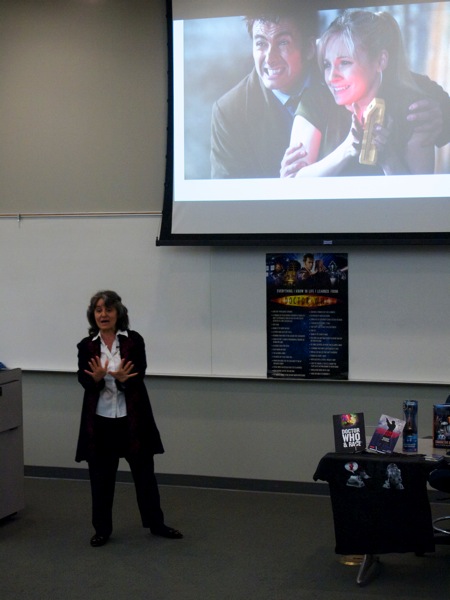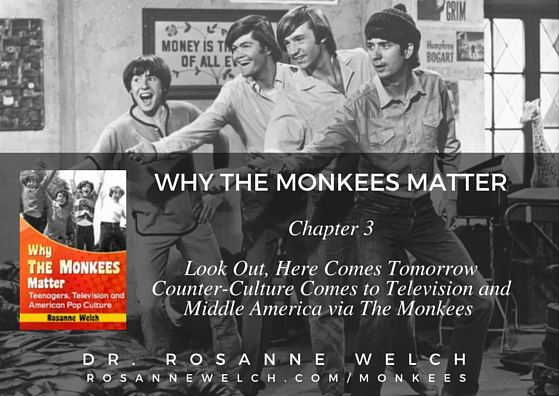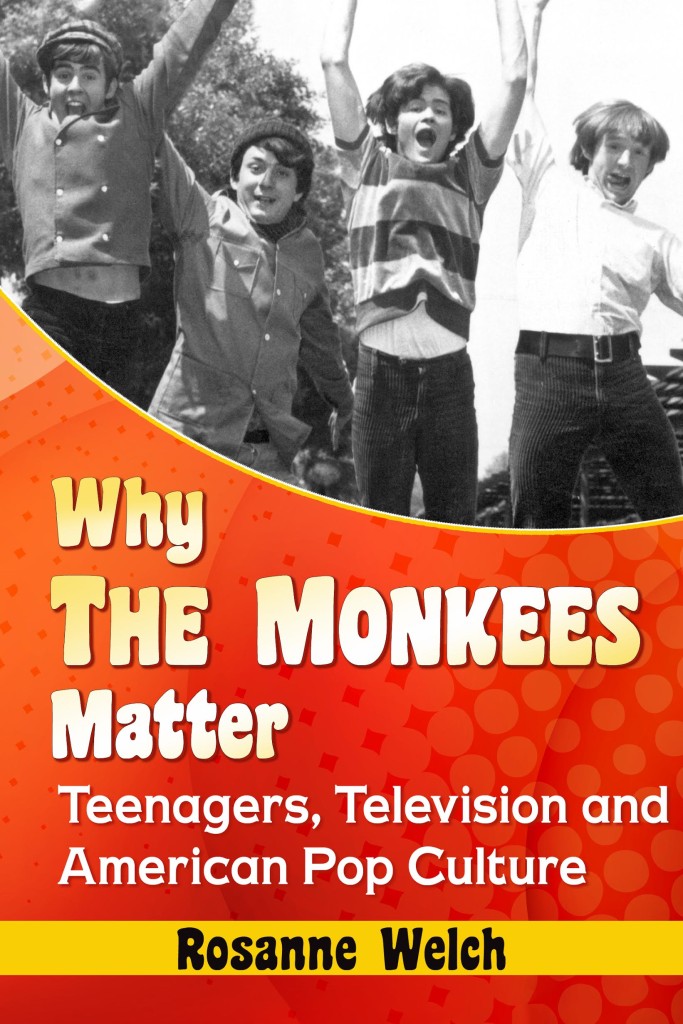Dr. Rosanne Welch presents “How Doctor Who Redefined Masculinity: A Study of the Doctors and their Male Companions“ at the Cal Poly Pomona University Library. Dr. Welch teaches in the IGE (Interdisciplinary General Education) program.
Watch the entire presentation here
Transcript:
One of my favorite episodes to do with family and fatherhood is the episode where James Corden guest starred as Craig Owens and his job was to take care of his baby and he was very bad at it. How many people have seen this episode? How cute it Stormageddon? I have a question for…of course, James Corden from “Into The Woods” right now and he’s also on his TV show, but what’s great about this episode is what saves his life? Does being a warrior save his life? Does being super-intelligent save his life? When the Cybermen show up and turn him into a Cyberman — which have never seen anyone undo. Once the Cybermen get you, you are done and the poor Doctor has to do that emotion inhibitor thing and suddenly you feel emotions and you blow up. it’s the only way to kill you once your a Cyberman. Except for him. He breaks the bond of “cyber” because he hears his baby cry and his need to save his child is stronger then the pull the Cybermen have on him in this metal casket that they’re creating around him. If that’s not a Dad, I don’t know what is. If that’s not a man who defines himself by his fatherhood, I do not know what is. So, I thinks a really interesting again, turn, in the modern Who. This is how Steven Moffat is defining masculinity as men who love their families. That’s the highest calling that a man can be brought to.
A clip from this 5th talk on various aspects of Doctor Who presented by Dr. Welch. You can find Dr. Welch’s other Doctor Who talks using the links below.
- Feminism in the Whoniverse
- Doctor Who and Culture
- Doctor Who Regenerated
- “How the Growing Popularity of the English Who-niverse Effected American TV” with Dr. Rosanne Welch

Follow Dr. Rosanne Welch on the Web and via social media at:
- Dr. Rosanne Welch Web Site and Blog
- Subcribe to Dr. Rosanne Welch on YouTube
- Follow Dr. Rosanne Welch on Twitter
- Dr. Rosanne Welch on Pinterest
- Dr. Rosanne Welch on Tumblr
Podcast: Play in new window | Download
Subscribe: RSS
![Saved By Fatherhood from How Doctor Who Redefined Masculinity [Video Clip] (1:35)](https://rosannewelch.com/wp-content/uploads/2016/03/dw-masculinity-18-saved-by-fatherhood-anim.gif)





![Cast and Crew of The Monkees Television Show from The Monkees Live Almanac [Photo]](https://rosannewelch.com/wp-content/uploads/2016/03/monkees-cast-crew.jpg)





